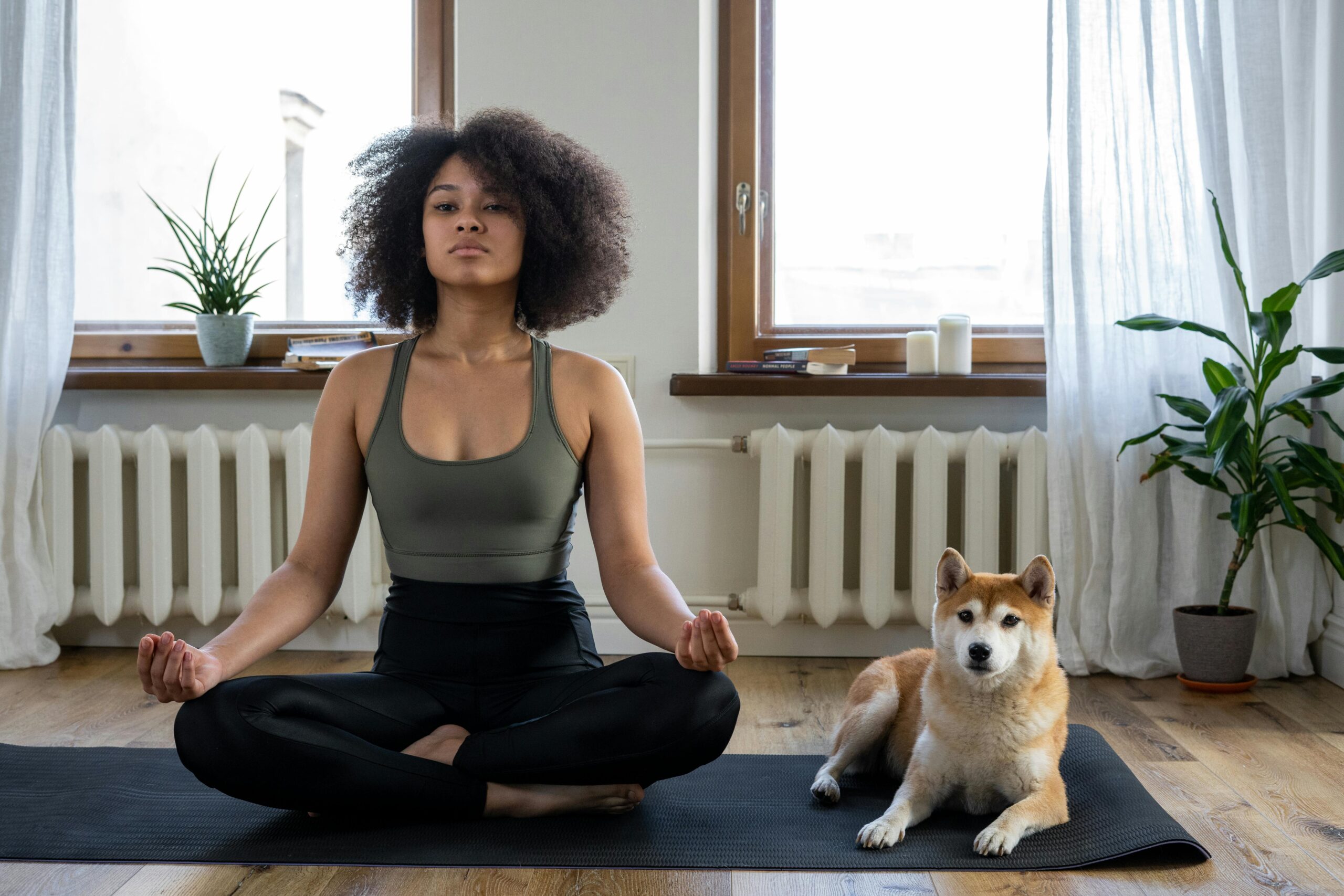Decompress After Work with a Self-Care Routine
“You are magnificent beyond measure, perfect in your imperfections, and wonderfully made.” —Abiola Abrams
(Audio credits – iamvanessae)
As always friends, Play the audio for a better experience!
After a long day of work, it’s important to decompress after work with a self-care routine. I like the idea of work-life balance and I like the way Napoleon Hill quotes how not to stress in life which goes like – “NOTHING which life has to offer is worth the price of worry”.
Taking care of yourself is essential for both your physical and mental well-being. By incorporating simple self-care strategies into your post-work routine, you can effectively ease stress and recharge for the next day.
Create a Calming Environment at Home

Stepping into your home after a busy workday should feel like entering a haven of peace and tranquility. To make this transition as soothing as possible, consider tailoring your living space into a calming sanctuary.
Begin by lighting a few candles to fill the air with a gentle glow and a comforting scent. The simple act of lighting a candle can remarkably transform the ambiance of a room, making it feel warmer and more welcoming.
Next, think about introducing soft background music or the gentle sound of a water fountain. These soothing sounds can act like a balm for your tired mind, helping to wash away the day’s stress.
The rhythm of music or the repetitive sound of water can be incredibly soothing, providing a sensory experience that encourages relaxation.
Another key aspect of creating a calming environment involves decluttering your space. A tidy and organized home can significantly impact your mental clarity and stress levels.
Take some time to put things away, making sure your home feels orderly and free of chaos. This not only helps in reducing visual distractions but also aids in cultivating a serene atmosphere where relaxation becomes instinctive.
Incorporating elements like soft throw blankets, plush pillows, and comfortable seating can also invite relaxation. These tactile comforts can make your home feel cozy and inviting, encouraging you to unwind and decompress fully.
By consciously crafting a calming environment at home, you’re setting the stage for a seamless transition from the hustle and bustle of work to a restful and rejuvenating evening.
Each step, from lighting candles to decluttering, plays a crucial role in creating a sanctuary that supports your well-being.
Transition from Work Mode to Relaxation Mode

Stepping away from the day’s work and into a state of relaxation isn’t always as simple as turning off a light switch.
However, there are gentle, deliberate actions you can take to ease this transition, making it smoother and more beneficial for your well-being.
One of the first steps is changing your physical state. Slip out of your work attire and into clothes that signal comfort and relaxation to your body and mind. This could be your favorite soft tee and cozy sweatpants or any outfit that makes you feel at ease.
Washing your face or taking a warm shower can also serve as a physical and symbolic cleansing, washing away the stress and concerns of the workday.
Allow this act to not only cleanse your skin but to also clear your mind, preparing you for a peaceful evening ahead. It’s a simple yet profound gesture that tells your body and brain, “Work is over, and now it’s time to rest.”
Taking a few moments to simply be still can also be incredibly powerful. Sit in a comfortable spot, maybe by a window or in your favorite chair, and allow yourself a few minutes of quiet.
This doesn’t need to be a structured meditation or breathing exercise—though those are wonderful options—but just a time to let go of the day’s demands and center yourself in the present moment.
These steps can create a bridge from the fast pace of your workday to the calm and restorative time you deserve in the evening.
By making these actions a regular part of your routine, you signal to your mind and body that it’s time to shift gears, embracing relaxation and self-care after a day of work.
Practice Deep Breathing and Mindfulness

Diving into the world of deep breathing and mindfulness might sound complex, but it’s actually a simple and powerful way to calm your mind after a bustling day. Think of it as a mini-vacation for your brain – a way to momentarily step away from the day’s chaos and find a spot of peace.
- Starting with deep breathing, it’s as easy as finding a quiet place to sit or lie down comfortably.
- Place one hand on your chest and the other on your belly. Breathe in slowly through your nose, feeling your belly rise more than your chest.
- Then, gently exhale through your mouth, letting the day’s worries flow out with your breath. This process of deep breathing can act like a reset button for your mood, easing you into a more relaxed state.
As for mindfulness, it’s about being fully present in the moment, not tangled in the past or anxious about the future.
You could focus on the sensations of your breathing, the feel of the chair or floor beneath you, or even the sounds around you. This doesn’t require any special equipment or a lot of time.
Just a few moments of paying attention on purpose and without judgment can make a significant difference in how you feel.
Incorporating these practices into your routine doesn’t have to be a chore or another task on your to-do list. View it as a gift to yourself – a way to kindly and gently bring your focus back to the here and now, where calm and clarity await you.
Engage in Gentle Physical Activity

Gentle physical activity is a wonderful way to help your body and mind let go of the day’s stress. It’s about moving in ways that bring joy and relaxation, not about pushing yourself hard. Think of this as a loving kindness to your body, a way to say thank you for carrying you through another day.
Consider activities that you look forward to, ones that make you feel light and at ease. This could be a short walk in the neighborhood, where you can breathe in fresh air and notice the beauty around you.
Or perhaps yoga, where each pose allows you to gently stretch and release tension. Even simple stretching exercises can be profoundly calming, allowing you to focus on your body and the present moment.
Engaging in such activities helps your body release endorphins, those feel-good chemicals that naturally boost your mood.
It’s not about the intensity of the workout but about creating moments of joy and ease. This approach to physical activity supports your well-being by enhancing relaxation and rejuvenation.
Remember, the goal is to find movements that feel good to you. There’s no right or wrong way to incorporate gentle physical activity into your routine. It’s all about listening to your body and honoring what it needs.
By doing so, you’re not only supporting your physical health but also nurturing your mental and emotional well-being.
Enjoy a Nourishing and Relaxing Meal

Preparing and eating a meal that nourishes your body and pleases your senses can be a wonderful act of self-care to help you decompress after a busy day.
Think about choosing ingredients that are not only good for your body but also make your taste buds dance with joy. Foods rich in colors, flavors, and textures can turn a simple dinner into a delightful experience.
Imagine the process of cooking as a way to transition from the fast pace of your workday to a more serene evening. Allow yourself to be fully present in the chopping, stirring, and cooking.
This isn’t just about feeding your body; it’s about feeding your soul with care and attention.Opt for meals that are balanced and light to avoid feeling weighed down before bedtime. A plate filled with vegetables, a source of lean protein, and a complex carbohydrate can provide the nutrients your body needs to repair and rejuvenate overnight.
Taking the time to sit down, free from distractions, and enjoy your meal can also be a form of mindfulness.
Pay attention to the flavors, textures, and aromas of your food. Appreciate the nourishment it provides and the effort you put into creating it.
This moment of tranquility with your meal is a precious pause in your day, a chance to slow down and truly care for yourself.
Let this be a time when you can reflect on the day’s achievements and gently release any remaining stress. Dining in this mindful way not only nurtures your body but also calms your mind, setting a peaceful tone for the rest of your evening.
Disconnect from Digital Devices

In our always-connected world, stepping away from our screens is a nurturing act of self-care that often goes overlooked.
It’s like giving your mind the space to breathe and relax, free from the constant buzz of notifications and the glow of screens. Making the choice to put aside your phone, shut down your computer, and turn off the tablet at least an hour before bed is a gentle yet powerful way to signal to your body and brain that the day is winding down, and it’s time for rest.
Imagine replacing the time you would spend scrolling through social media or replying to just “one more email” with activities that sooth and recharge your spirit.
This could be anything from getting lost in the pages of a good book, jotting down thoughts in a journal, or simply enjoying the quiet hum of the night.
These screen-free moments allow you to connect more deeply with yourself and the world around you, creating a peaceful sanctuary where relaxation takes the forefront.
By consciously choosing to disconnect from digital devices as part of your evening routine, you’re not just reducing mental stimulation; you’re inviting a quality of calm and serenity into your life that supports restful sleep and a more peaceful state of being.
It’s a small step that can make a big difference in how you feel, both physically and emotionally, as you ease into the night.
Incorporate a Relaxing Evening Hobby

Finding joy in a relaxing evening hobby is like opening a door to a peaceful retreat within your own home.
This hobby could be anything that lights a spark of happiness in your heart, without demanding too much energy or focus. Imagine the soothing rhythm of knitting, the delicate strokes of a paintbrush, or the gentle care of tending to indoor plants.
These activities are not just hobbies; they’re pathways to tranquility, offering you a chance to step away from the day’s stress and immerse yourself in simple pleasures.
By dedicating time to a hobby you love, you’re giving yourself permission to explore creativity and calm in a way that’s uniquely yours. This exploration is not about achieving perfection or reaching a specific goal.
Instead, it’s about letting the process unfold naturally, allowing your mind to wander and your spirit to lighten. Through this gentle engagement, you’re not only enriching your evenings but also enriching your sense of self, nurturing a deeper connection to the things that bring you peace and joy.
Develop a Consistent Sleep Routine
Embracing a consistent sleep routine is like setting a gentle rhythm for your body and mind, a rhythm that soothes and prepares you for a night of restful sleep.
Think of it as creating a soft, comforting pattern that your body learns to recognize, signaling that it’s time to slow down and embrace rest. This means choosing a set time to ease into bed and wake up, even on days off, helping to stabilize your internal clock.
Introduce calming activities before bed, such as reading a book or practicing a few moments of deep breathing, to help ease the transition from day to night. These quiet moments can significantly calm your mind, making it easier to drift into sleep.
Steer clear of stimulants like caffeine and avoid heavy meals late in the evening, as these can keep you awake and disrupt the peaceful rest your body craves.
By nurturing a regular sleep schedule, you’re not just helping your body rest better; you’re crafting a foundation for more vibrant, energetic days.
This gentle commitment to your well-being at night enriches your quality of life, offering a more refreshed and joyful you to the world each day.
Frequently Asked Questions:
1. What is a self-care routine?
A self-care routine consists of activities and practices designed to improve your well-being and help you unwind. These can include physical activities, relaxation techniques, hobbies, or anything that helps you recharge and reduce stress.
2. Why is it important to have a self-care routine after work?
A self-care routine helps you transition from work mode to personal time, reducing stress and preventing burnout. It allows you to relax, recharge, and maintain a healthy work-life balance, which is crucial for overall well-being.
3. What are some effective activities to include in a self-care routine?
Effective activities can vary based on personal preferences but may include:
- Exercise or physical activity (e.g., yoga, jogging)
- Mindfulness or meditation
- Reading or listening to music
- Taking a warm bath
- Engaging in a hobby or creative outlet
- Spending time with loved ones
- Journaling or reflecting on your day
4. How long should a self-care routine take?
The length of a self-care routine can vary depending on your schedule and preferences. Even short periods, such as 15-30 minutes, can be effective. The key is to find activities that you enjoy and can realistically incorporate into your daily routine.
5. How do I create a self-care routine that works for me?
Start by identifying activities that help you relax and feel rejuvenated. Experiment with different practices to see what resonates with you. Consistency is important, so try to incorporate your chosen activities into your daily or weekly routine.
6. Can I include social activities in my self-care routine?
Absolutely! Social activities can be a great way to unwind and connect with others. Whether it’s spending time with friends and family or participating in social hobbies, these activities can enhance your well-being and provide a meaningful break from work.
7. What if I have trouble finding time for a self-care routine?
If time is limited, focus on short, high-impact activities that fit into your schedule. Prioritize self-care by integrating it into your daily routine, such as taking brief mindfulness breaks or incorporating quick exercises. Even small efforts can make a significant difference.
8. How often should I practice my self-care routine?
Ideally, aim to engage in self-care activities daily or several times a week. Consistency helps build a habit and ensures that you regularly take time for yourself. However, listen to your body and adjust as needed based on your stress levels and personal needs.
9. Can a self-care routine help with work-related stress?
Yes, a well-designed self-care routine can help manage work-related stress by providing you with tools and practices to relax and unwind. It can also improve your overall resilience and mental health, making it easier to handle work-related challenges.
10. What if I don’t know where to start with self-care?
Start by exploring different self-care activities and seeing what resonates with you. You can seek inspiration from books, online resources, or even ask friends for their self-care tips. Remember, self-care is personal, so find what works best for you and makes you feel refreshed.
news via inbox
Nulla turp dis cursus. Integer liberos euismod pretium faucibua







